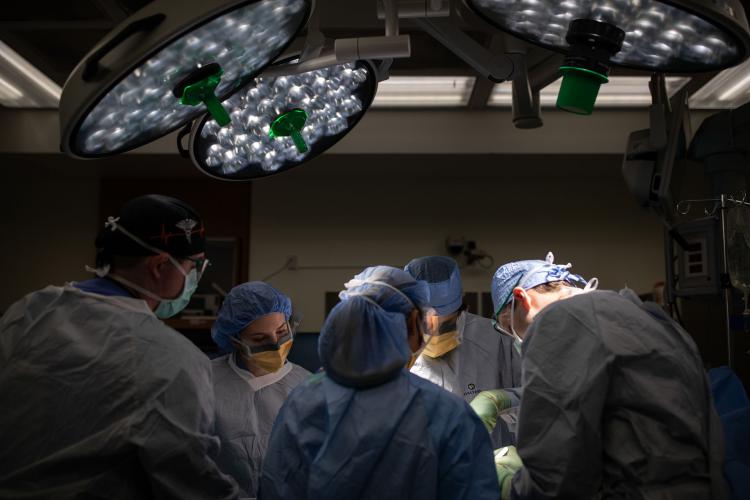
JPS Health Network has earned the Gold Level Go Clear Award™ for its achievement in eliminating hazardous smoke from its surgical procedures, protecting the health of patients and surgical team members.
JPS is the first hospital in Fort Worth to earn the Gold Level, the highest designation in the recognition program.
The Go Clear Award is presented by the Association of periOperative Registered Nurses (AORN) and recognizes healthcare facilities that have implemented practices that eliminate smoke caused by the use of lasers and electrosurgery devices during surgery.
“As one of 300 healthcare facilities across the country, achieving the AORN Go Clear Award demonstrates our commitment to patient and staff safety, by ensuring a smoke-free environment for both our patients and staff in our perioperative areas,” said Jill Farrell, Senior Vice President, Chief Nursing Officer at JPS Health Network. “JPS team members worked hard to attain this designation. The health and safety of everyone in our facilities is always of paramount importance.”
Many surgical procedures generate surgical smoke. To counteract the dangerous smoke, JPS uses exhaust machines to evacuate surgical smoke in all 13 operating rooms at John Peter Smith Hospital, as well as in Labor & Delivery, Endoscopy, Interventional Radiology/Cardiac Catheterization Lab, and the JPS Surgical Center- Arlington. This provides a healthier, surgical smoke-free environment.
Surgical smoke is the unwanted by-product of energy-generating devices that are used in 90 percent of all surgeries. Its contents include toxic chemicals such as benzene, formaldehyde, hydrogen cyanide, carbon monoxide, viruses, bacteria, and blood and cancer cells. Inhalation and absorption of surgical smoke pose serious health risks to patients and surgical staff.
Studies compare the inhalation of smoke from vaporized human tissue to the smoke created by cigarettes; the average daily impact of surgical smoke to the surgical team is equivalent to inhaling 27 to 30 unfiltered cigarettes, according to AORN.
“This effort involved a significant process change for the surgeons, but everybody worked together and was onboard because it’s the right thing to do to protect, not only themselves, but the entire surgical team and the patient,” said Angela Barkley, Manager & Operating Room/Anesthesia Support.
